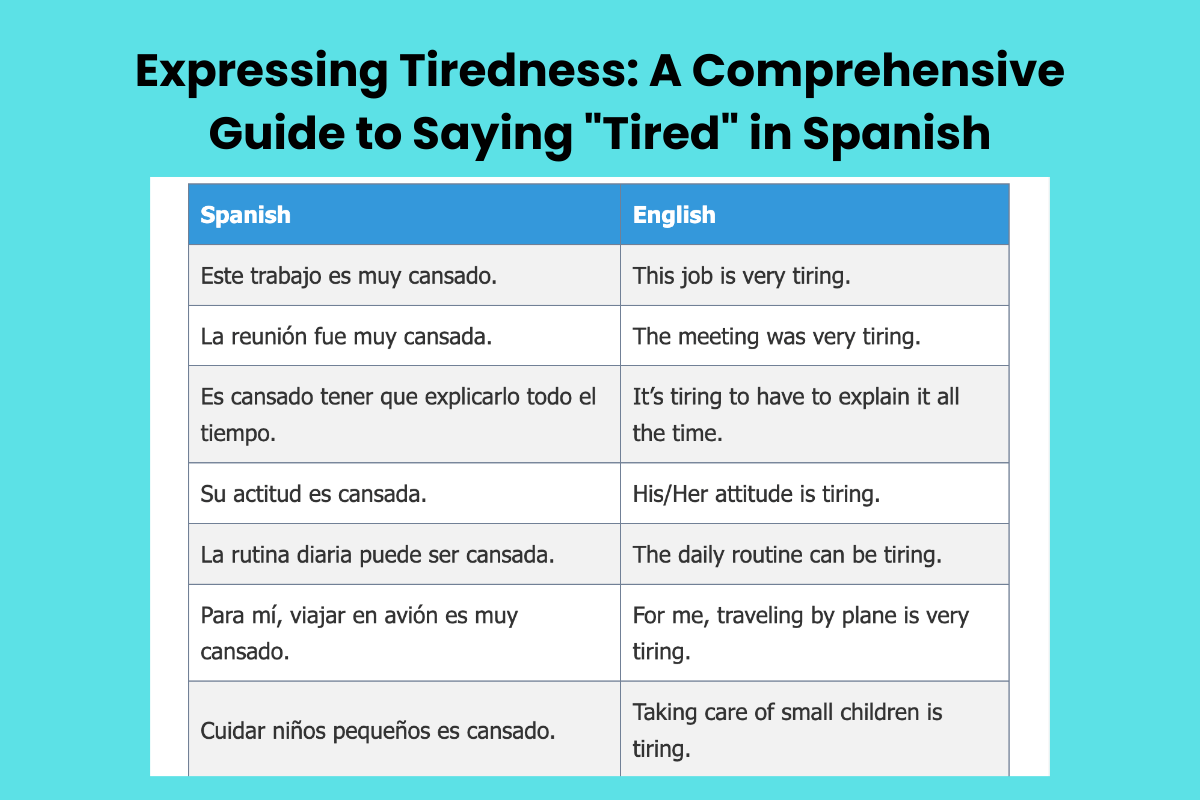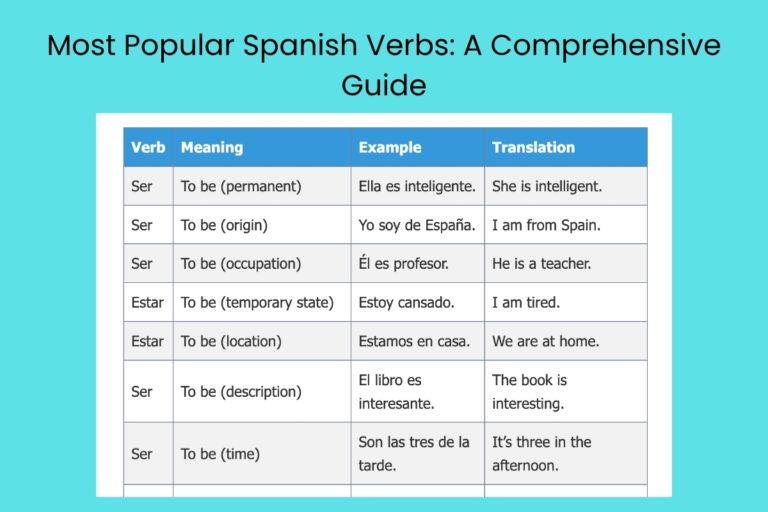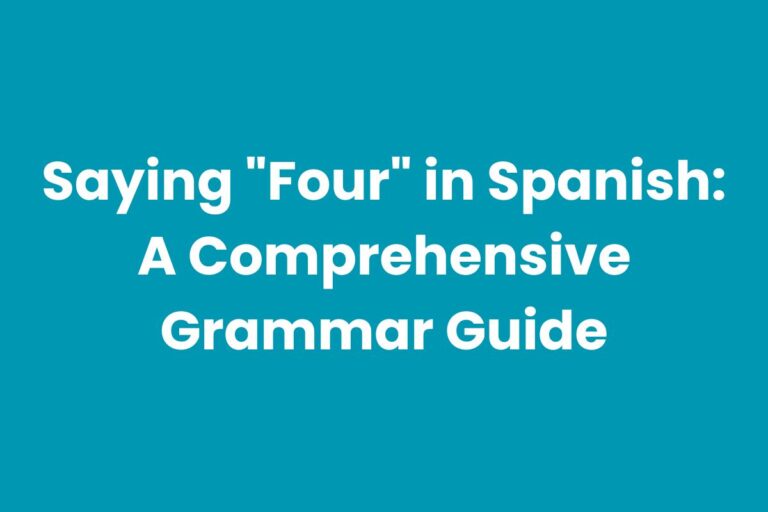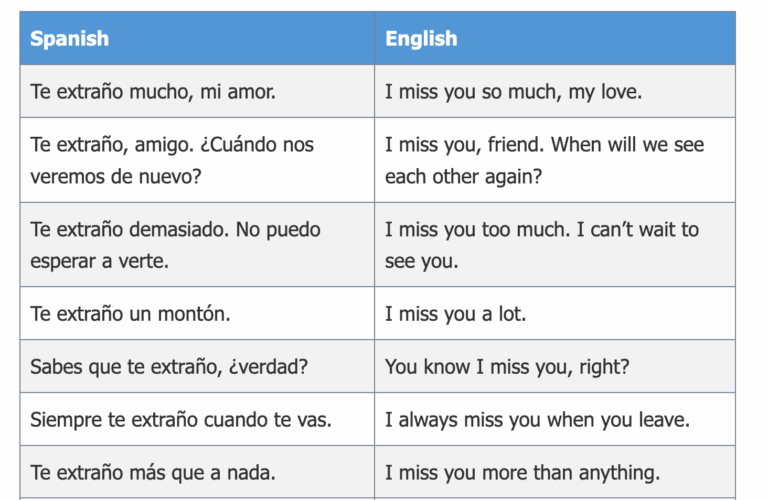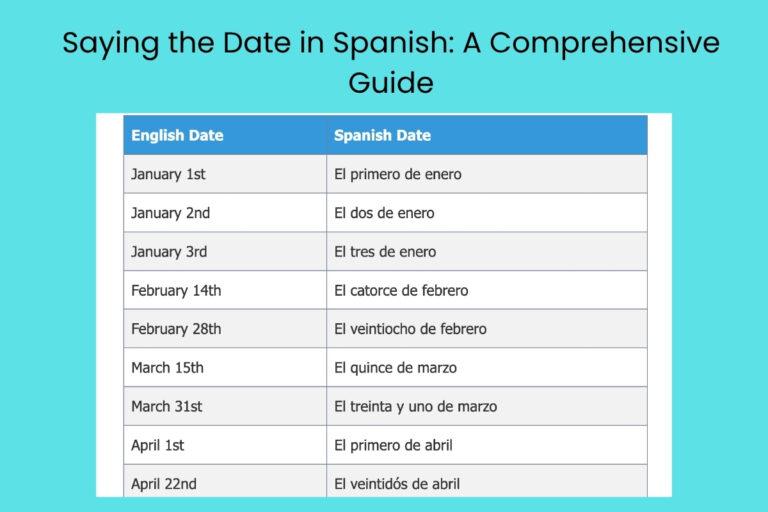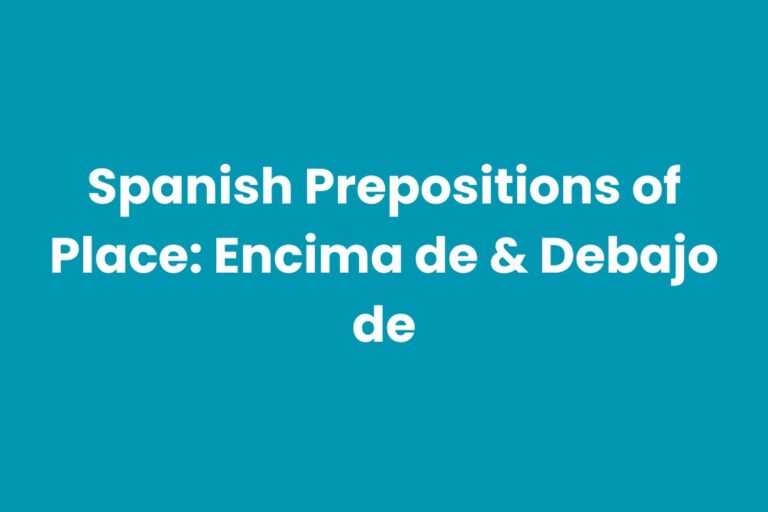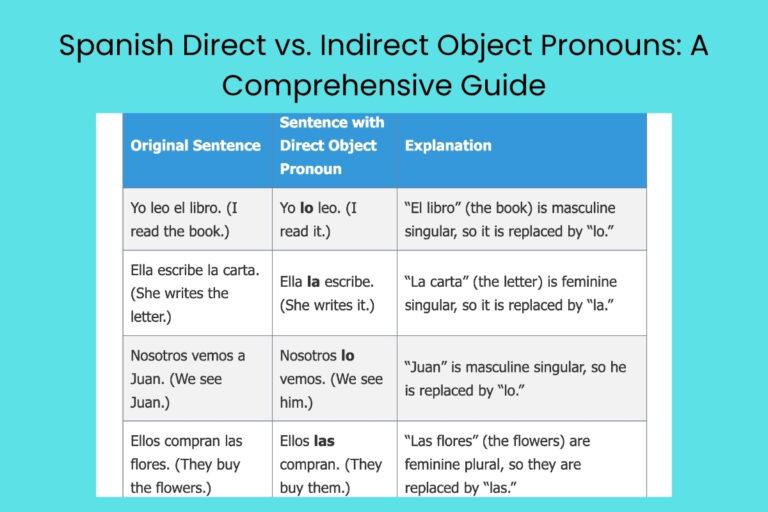Expressing Tiredness: A Comprehensive Guide to Saying “Tired” in Spanish
Understanding how to express tiredness in Spanish is crucial for effective communication. Whether you’re traveling, studying, or simply conversing with Spanish speakers, knowing the nuances of expressing different levels and types of fatigue can significantly enhance your ability to convey your feelings accurately.
This article provides a detailed exploration of the various ways to say “tired” in Spanish, covering grammatical structures, idiomatic expressions, and practical examples. This guide is perfect for students, travelers, and anyone looking to improve their Spanish language skills by mastering this essential vocabulary and grammar point.
Table of Contents
- Introduction
- Definition of “Tired” in Spanish
- Structural Breakdown
- Types and Categories of Tiredness
- Examples of Saying “Tired” in Spanish
- Usage Rules
- Common Mistakes
- Practice Exercises
- Advanced Topics
- FAQ
- Conclusion
Definition of “Tired” in Spanish
The concept of “tired” in Spanish is primarily conveyed through the adjective cansado/a, which translates directly to “tired.” However, the Spanish language offers a variety of ways to express tiredness, each with its own nuance and context. The key is understanding which verb to pair with cansado/a (ser or estar) and exploring other idiomatic expressions that capture different aspects of fatigue. Understanding the difference between using “ser” and “estar” is crucial for correctly expressing a temporary or permanent state of tiredness.
The adjective cansado/a describes the state of being weary or fatigued. It can refer to physical, mental, or emotional exhaustion. The choice of verb (ser or estar) determines whether the tiredness is perceived as a temporary condition (estar) or an inherent characteristic (ser). However, in the context of tiredness, estar is far more common and appropriate. Furthermore, the expression tener sueño, meaning “to have sleep,” is used to indicate sleepiness or drowsiness.
Structural Breakdown
The primary structures for expressing tiredness in Spanish involve the verb ser or estar followed by the adjective cansado/a, which must agree in gender and number with the subject. The verb tener, combined with the noun sueño, is also commonly used. Let’s break down each structure:
- Estar + cansado/a: This is the most common construction and indicates a temporary state of tiredness. For example, Estoy cansado (I am tired).
- Ser + cansado/a: This is less common but can be used to describe someone who is inherently tiring or causes tiredness in others. For example, Es cansado tratar con él (It’s tiring to deal with him). Keep in mind that this usage is relatively rare when describing personal feelings of tiredness.
- Tener + sueño: This translates to “to have sleep” but means “to be sleepy.” For example, Tengo sueño (I am sleepy).
The adjective *cansado/a* changes endings depending on the gender and number of the subject:
- Masculine singular: cansado
- Feminine singular: cansada
- Masculine plural: cansados
- Feminine plural: cansadas
Types and Categories of Tiredness
Tiredness can manifest in various forms, each requiring slightly different nuances in expression. Here are some common categories:
Physical Tiredness
Physical tiredness refers to fatigue resulting from physical exertion or lack of rest. This is often expressed with estar cansado/a after a workout, a long day of work, or any strenuous activity. It describes the feeling of your body being worn out.
Mental Tiredness
Mental tiredness arises from prolonged cognitive effort, stress, or lack of sleep. This form of tiredness can be described using estar cansado/a mentalmente (to be mentally tired) or other expressions that emphasize mental exhaustion. It indicates a state where your mind feels drained and unable to focus.
Emotional Tiredness
Emotional tiredness stems from dealing with stressful situations, emotional burdens, or lack of emotional support. This can also be expressed using estar cansado/a emocionalmente (to be emotionally tired) or through idiomatic expressions that convey a sense of emotional drain. This type of tiredness often results in feelings of apathy or detachment.
Examples of Saying “Tired” in Spanish
Here are several examples of how to express tiredness in Spanish, categorized by the grammatical structure used. Each category provides a range of examples to illustrate different contexts and levels of fatigue.
Examples with Ser + Cansado
While less common for expressing personal feelings of tiredness, ser cansado/a is used to describe something or someone that causes tiredness.
The following table provides examples of using Ser + Cansado/a. Note the context in which this form is most appropriate.
| Spanish | English |
|---|---|
| Este trabajo es muy cansado. | This job is very tiring. |
| La reunión fue muy cansada. | The meeting was very tiring. |
| Es cansado tener que explicarlo todo el tiempo. | It’s tiring to have to explain it all the time. |
| Su actitud es cansada. | His/Her attitude is tiring. |
| La rutina diaria puede ser cansada. | The daily routine can be tiring. |
| Para mí, viajar en avión es muy cansado. | For me, traveling by plane is very tiring. |
| Cuidar niños pequeños es cansado. | Taking care of small children is tiring. |
| Escribir un libro es un proceso cansado. | Writing a book is a tiring process. |
| La espera fue cansada. | The wait was tiring. |
| La burocracia es cansada. | Bureaucracy is tiring. |
| La discusión fue muy cansada. | The discussion was very tiring. |
| La caminata fue cansada. | The hike was tiring. |
| La clase de matemáticas es cansada. | Math class is tiring. |
| El tráfico es cansado. | The traffic is tiring. |
| La búsqueda de empleo es cansada. | The job search is tiring. |
| Hacer la declaración de impuestos es cansado. | Doing the tax return is tiring. |
| La mudanza fue cansada. | The move was tiring. |
| La organización del evento fue cansada. | Organizing the event was tiring. |
| La negociación fue cansada. | The negotiation was tiring. |
| La preparación de la cena fue cansada. | Preparing dinner was tiring. |
| La lectura de este libro es cansada. | Reading this book is tiring. |
| La reparación del coche fue cansada. | Repairing the car was tiring. |
| La limpieza de la casa es cansada. | Cleaning the house is tiring. |
Examples with Estar + Cansado
This is the most common way to express that you are tired in Spanish. Remember to match the gender and number of the adjective with the subject.
The following table provides examples of using Estar + Cansado/a to express personal tiredness.
| Spanish | English |
|---|---|
| Estoy cansado. (masculine) | I am tired. (masculine) |
| Estoy cansada. (feminine) | I am tired. (feminine) |
| Estamos cansados. (masculine plural) | We are tired. (masculine plural) |
| Estamos cansadas. (feminine plural) | We are tired. (feminine plural) |
| ¿Estás cansado? (masculine) | Are you tired? (masculine) |
| ¿Estás cansada? (feminine) | Are you tired? (feminine) |
| Está muy cansado después del trabajo. | He is very tired after work. |
| Ella está cansada después de correr. | She is tired after running. |
| Ellos están cansados de estudiar. | They are tired of studying. |
| Ellas están cansadas de esperar. | They are tired of waiting. |
| Estoy muy cansado hoy. | I am very tired today. |
| Después de la fiesta, estábamos muy cansados. | After the party, we were very tired. |
| ¿No estás cansado de lo mismo? | Aren’t you tired of the same thing? |
| Él está cansado de sus quejas. | He is tired of their complaints. |
| Estoy cansado de escuchar tus excusas. | I’m tired of hearing your excuses. |
| Estamos cansados del ruido. | We are tired of the noise. |
| Estoy cansada de esta situación. | I am tired of this situation. |
| Están cansados de la rutina. | They are tired of the routine. |
| Ella está cansada de trabajar tanto. | She is tired of working so much. |
| Estoy cansado de conducir. | I am tired of driving. |
| Estamos cansados de limpiar la casa. | We are tired of cleaning the house. |
| ¿Estás cansado de estudiar español? | Are you tired of studying Spanish? |
| Está cansada de cocinar todos los días. | She is tired of cooking every day. |
Examples with Tener Sueño
Tener sueño specifically means “to be sleepy” or “to have sleepiness.” It’s a useful expression when you want to convey that you feel drowsy or need to sleep.
The following table provides examples of using Tener Sueño to express sleepiness.
| Spanish | English |
|---|---|
| Tengo sueño. | I am sleepy. |
| Tenemos sueño. | We are sleepy. |
| ¿Tienes sueño? | Are you sleepy? |
| Él tiene mucho sueño. | He is very sleepy. |
| Ella tiene sueño después de leer. | She is sleepy after reading. |
| Siempre tengo sueño por la tarde. | I am always sleepy in the afternoon. |
| Después de comer, tengo sueño. | After eating, I am sleepy. |
| Los niños tienen sueño. | The children are sleepy. |
| ¿No tienes sueño todavía? | Aren’t you sleepy yet? |
| Tengo tanto sueño que no puedo concentrarme. | I am so sleepy that I can’t concentrate. |
| Después del viaje, todos tenían mucho sueño. | After the trip, everyone was very sleepy. |
| Tengo un poco de sueño. | I am a little sleepy. |
| ¿Por qué siempre tienes sueño en clase? | Why are you always sleepy in class? |
| Tengo sueño, necesito una siesta. | I am sleepy, I need a nap. |
| Esta medicina me da sueño. | This medicine makes me sleepy. |
| Tengo sueño, voy a dormir. | I am sleepy, I am going to sleep. |
| ¿Quién no tiene sueño después de un día largo? | Who isn’t sleepy after a long day? |
| Tengo sueño, pero necesito terminar este trabajo. | I am sleepy, but I need to finish this work. |
| Tengo tanto sueño que veo doble. | I am so sleepy that I see double. |
Examples with Other Expressions
Spanish offers other ways to express tiredness, often using idiomatic phrases.
The following table provides examples of other expressions to convey tiredness or exhaustion.
| Spanish | English |
|---|---|
| Estoy hecho polvo. (masculine) | I am shattered. (masculine) |
| Estoy hecha polvo. (feminine) | I am shattered. (feminine) |
| Estoy agotado. (masculine) | I am exhausted. (masculine) |
| Estoy agotada. (feminine) | I am exhausted. (feminine) |
| Estoy reventado. (masculine) | I am beat. (masculine) |
| Estoy reventada. (feminine) | I am beat. (feminine) |
| No puedo más. | I can’t go on anymore. |
| Estoy muerto de cansancio. (masculine) | I am dead tired. (masculine) |
| Estoy muerta de cansancio. (feminine) | I am dead tired. (feminine) |
| Necesito descansar. | I need to rest. |
| Me siento exhausto. (masculine) | I feel exhausted. (masculine) |
| Me siento exhausta. (feminine) | I feel exhausted. (feminine) |
| No tengo energías. | I have no energy. |
| Estoy sin fuerzas. | I am without strength. |
| Necesito una siesta. | I need a nap. |
| Estoy para el arrastre. | I am dragging myself around. |
| Este día me ha dejado K.O. | This day has knocked me out. |
| Estoy que no puedo ni con mi alma. | I am so tired I can barely carry my soul. |
| Estoy fundido. (masculine) | I am burned out. (masculine) |
| Estoy fundida. (feminine) | I am burned out. (feminine) |
| Estoy molido. (masculine) | I am ground down (tired). (masculine) |
| Estoy molida. (feminine) | I am ground down (tired). (feminine) |
Usage Rules
Understanding the correct usage of ser, estar, and other expressions is key to accurately conveying tiredness in Spanish.
Ser vs. Estar
The choice between ser and estar is crucial. Estar is used to describe temporary states or conditions, which is almost always the case when expressing personal tiredness. Ser, on the other hand, describes inherent characteristics or qualities. While less common, ser + cansado can be used to describe something that is inherently tiring.
Correct: Estoy cansado/a (I am tired) – temporary state.
Less Common, but Correct: Este trabajo es cansado (This job is tiring) – describing the job as having a tiring quality.
Gender and Number Agreement
The adjective cansado/a must agree in gender and number with the subject of the sentence. This is a fundamental rule of Spanish grammar.
Examples:
- Yo estoy cansado (I am tired – masculine)
- Yo estoy cansada (I am tired – feminine)
- Nosotros estamos cansados (We are tired – masculine)
- Nosotras estamos cansadas (We are tired – feminine)
Rules for Using Tener Sueño
Tener sueño is a fixed expression, meaning “to be sleepy.” The verb tener is conjugated according to the subject, and sueño remains unchanged, as it is a noun.
Examples:
- Yo tengo sueño (I am sleepy)
- Tú tienes sueño (You are sleepy)
- Él/Ella tiene sueño (He/She is sleepy)
- Nosotros tenemos sueño (We are sleepy)
- Vosotros tenéis sueño (You all are sleepy – Spain)
- Ellos/Ellas tienen sueño (They are sleepy)
Common Mistakes
Here are some common mistakes learners make when expressing tiredness in Spanish:
| Incorrect | Correct | Explanation |
|---|---|---|
| Soy cansado. | Estoy cansado. | Using ser instead of estar to describe a temporary state. |
| Tengo cansado. | Estoy cansado. | Incorrect use of tener with cansado. |
| Estoy sueño. | Tengo sueño. | Incorrect use of estar with sueño. |
| Estamos cansado. | Estamos cansados. | Failure to agree in number (plural) between the subject and adjective. |
| Ella es cansada. (when meaning “she is tired”) | Ella está cansada. | Using ‘ser’ to express a temporary state instead of ‘estar’. |
Practice Exercises
Test your understanding with these practice exercises.
Exercise 1: Fill in the Blanks
Fill in the blanks with the correct form of estar cansado/a or tener sueño.
| Question | Answer |
|---|---|
| Yo _______ después del trabajo. | estoy cansado/cansada |
| Nosotros _______ mucho _______ después de correr. | tenemos, sueño |
| ¿Tú _______ de esperar? | estás cansado/cansada |
| Él _______ muy _______ hoy. | está, cansado |
| Ellas _______ porque no durmieron bien. | están cansadas |
| ¿Ustedes _______ después de la clase? | están cansados/cansadas |
| Yo _______ , necesito una siesta. | tengo sueño |
| Mi madre _______ de limpiar la casa. | está cansada |
| Mis amigos _______ de estudiar para el examen. | están cansados |
| Después de la cena, yo siempre _______. | tengo sueño |
Exercise 2: Translation
Translate the following sentences into Spanish using the appropriate expressions for tiredness.
| English | Spanish |
|---|---|
| I am very tired after the trip. | Estoy muy cansado/cansada después del viaje. |
| We are sleepy after watching the movie. | Tenemos sueño después de ver la película. |
| Are you tired of working? | ¿Estás cansado/cansada de trabajar? |
| He is exhausted from the exercise. | Él está agotado por el ejercicio. |
| She is dead tired after the party. | Ella está muerta de cansancio después de la fiesta. |
| They are tired of the same routine. | Están cansados de la misma rutina. |
| I am so sleepy that I can’t focus. | Tengo tanto sueño que no puedo concentrarme. |
| We are tired of hearing the same complaints. | Estamos cansados de escuchar las mismas quejas. |
| I need to rest, I’m worn out. | Necesito descansar, estoy hecho/hecha polvo. |
| They are sleepy after the long journey. | Tienen sueño después del largo viaje. |
Exercise 3: Correct the Sentence
Identify and correct the errors in the following sentences.
| Incorrect | Correct | Explanation |
|---|---|---|
| Soy cansada después de correr. | Estoy cansada después de correr. | Use estar for temporary states. |
| Tengo cansado de esperar. | Estoy cansado de esperar. | Cansado requires estar. |
| Él está sueño. | Él tiene sueño. | Sueño requires tener. |
| Nosotros estamos cansado. | Nosotros estamos cansados. | Adjective must agree in number. |
| Ellas es cansadas. | Ellas están cansadas. | Use estar and ensure verb agreement. |
| Estoy muy sueño hoy. | Tengo mucho sueño hoy. | Use ‘tener’ with ‘sueño’. |
| ¿Tú eres cansado? | ¿Tú estás cansado? | Use ‘estar’ to describe a temporary state. |
| Tenemos cansados después de la fiesta. | Estamos cansados después de la fiesta. | Use ‘estar’ + adjective and ensure agreement. |
| Ella tengo sueño después de leer. | Ella tiene sueño después de leer. | Correct conjugation of ‘tener’. |
| Yo es cansado de este trabajo. | Estoy cansado de este trabajo. | Use ‘estar’ for temporary feelings. |
Advanced Topics
For advanced learners, let’s delve into more complex aspects of expressing tiredness.
Idiomatic Expressions for Tiredness
Spanish boasts several idiomatic expressions to convey different degrees of tiredness. These expressions often add color and nuance to your speech.
Some examples include:
- Estar hecho polvo: To be shattered.
- Estar agotado/a: To be exhausted.
- Estar reventado/a: To be beat.
- Estar muerto/a de cansancio: To be dead tired.
- Estar para el arrastre: To be dragging oneself around.
Regional Variations
While the core grammar remains consistent, some regions may have their own preferred expressions or nuances in conveying tiredness. For instance, certain Latin American countries may use different slang terms or idiomatic phrases not commonly used in Spain.
FAQ
Here are some frequently asked questions about expressing tiredness in Spanish:
- What is the difference between ser cansado and estar cansado?
Estar cansado describes a temporary state of being tired, while ser cansado describes something or someone that causes tiredness. Estoy cansado (I am tired) vs. Este trabajo es cansado (This job is tiring).
- How do I say “sleepy” in Spanish?
You say “sleepy” in Spanish by using the expression tener sueño, which means “to have sleep.” For example, Tengo sueño (I am sleepy).
- Do I need to change the ending of cansado?
Yes, cansado needs to agree in gender and number with the subject. Use cansado (masculine singular), cansada (feminine singular), cansados (masculine plural), or cansadas (feminine plural).
- Can I use tener with cansado?
No, you cannot use tener with cansado. You must use estar cansado. Tener is used with sueño to mean “sleepy.”
- What are some other ways to say “tired” in Spanish?
Other expressions include estar hecho polvo (to be shattered), estar agotado/a (to be exhausted), and estar reventado/a (to be beat).
- Is it common to say “I am mentally tired” in Spanish?
Yes, you can say Estoy cansado/a mentalmente to express that you are mentally tired.
- Are there regional variations in how people express tiredness?
Yes, some regions may have their own preferred slang terms or idiomatic phrases to convey tiredness, although the core grammar remains the same.
- How do I ask someone if they are tired in Spanish?
You can ask “Are you tired?” by saying ¿Estás cansado/a? (masculine/feminine) or ¿Tienes sueño? (Are you sleepy?).
- What’s a polite way to say I’m tired and need to leave?
You could say: “Estoy un poco cansado/a, así que creo que me voy a retirar.” (I’m a bit tired, so I think I’ll excuse myself.). Another option is: “Me siento un poco agotado/a, así que creo que es hora de que me vaya.” (I feel a bit exhausted, so I think it’s time for me to go.)
- How can I emphasize that I am extremely tired?
You can use phrases like “Estoy muerto/a de cansancio” (I’m dead tired), “Estoy hecho/a polvo” (I’m shattered), or “Estoy agotadísimo/a” (I’m extremely exhausted). You can also say “No puedo más” (I can’t go on anymore).
Conclusion
Mastering how to express tiredness in Spanish involves understanding the nuances of ser vs. estar, gender and number agreement, and idiomatic expressions. The most common way to express that you are tired is by using estar cansado/a, while tener sueño indicates sleepiness. By practicing the examples and exercises provided, you can confidently and accurately convey your feelings of fatigue in Spanish. Remember to pay attention to context and choose the expression that best fits your situation.
Continue practicing these expressions in real conversations to solidify your understanding. Don’t be afraid to make mistakes; they are a natural part of the learning process.
With consistent effort and attention to detail, you’ll be able to express tiredness in Spanish like a native speaker. Good luck, and keep practicing!

